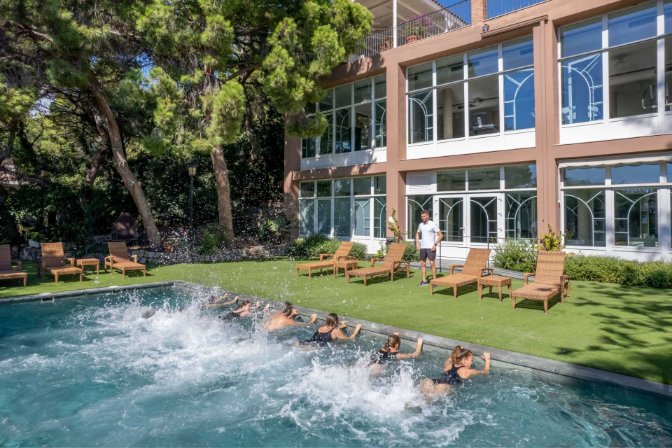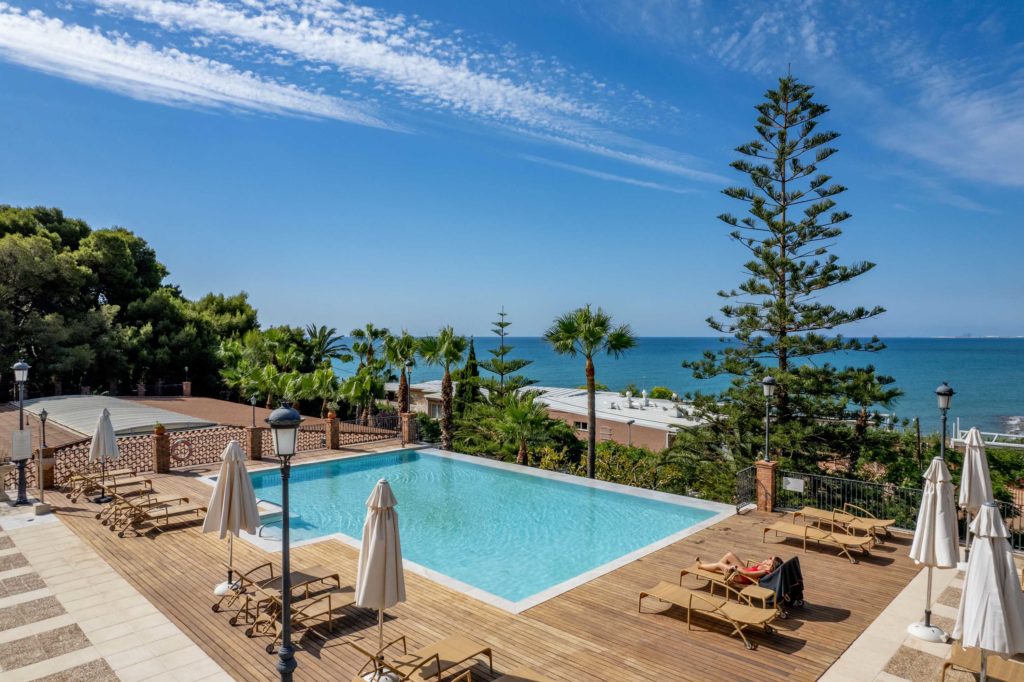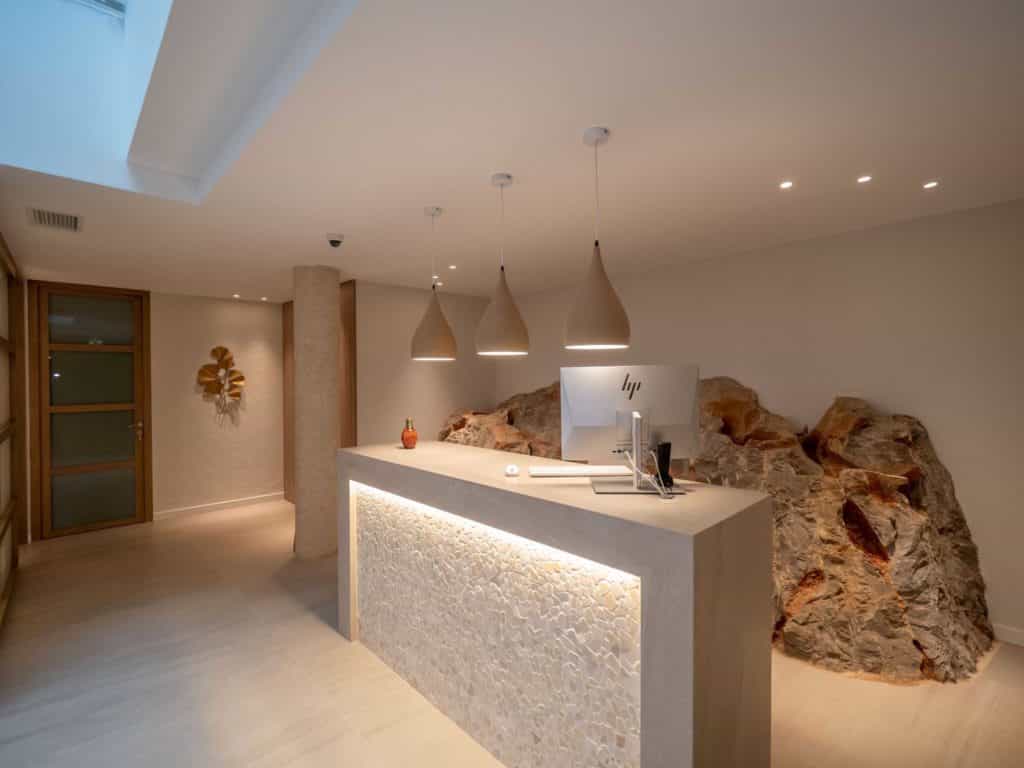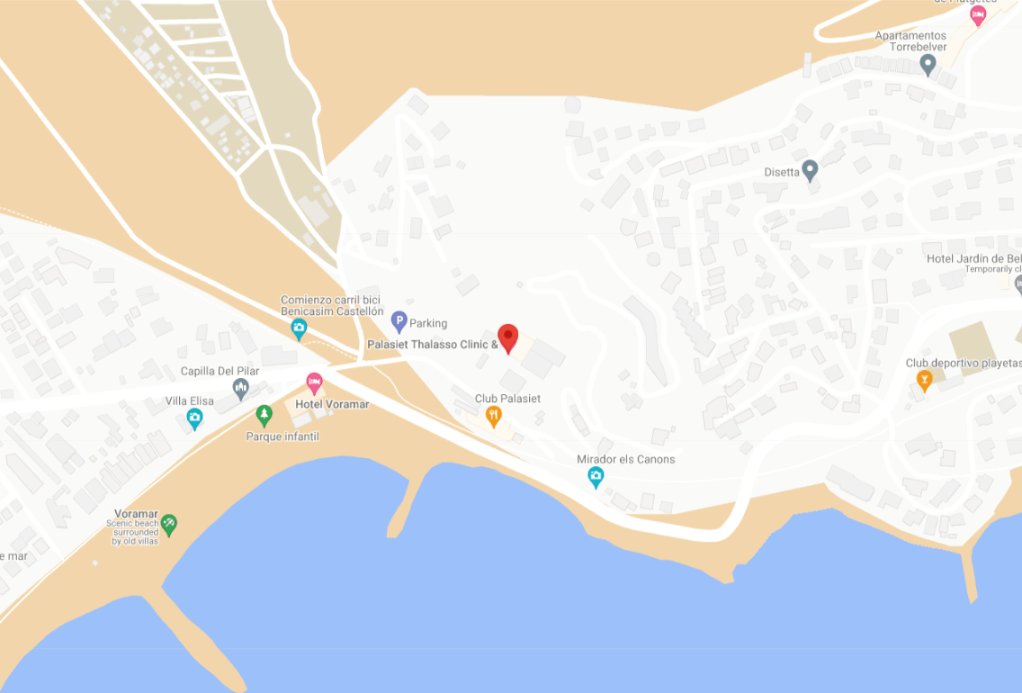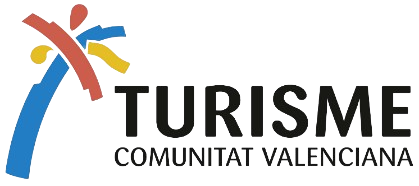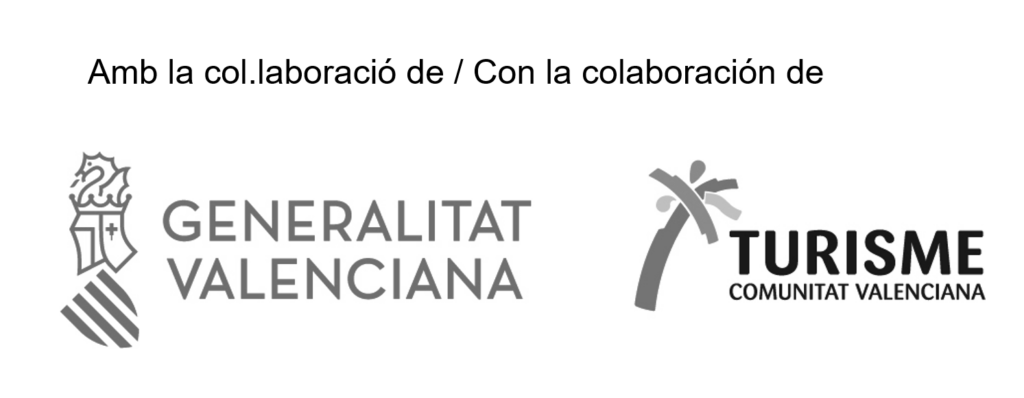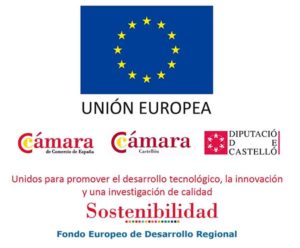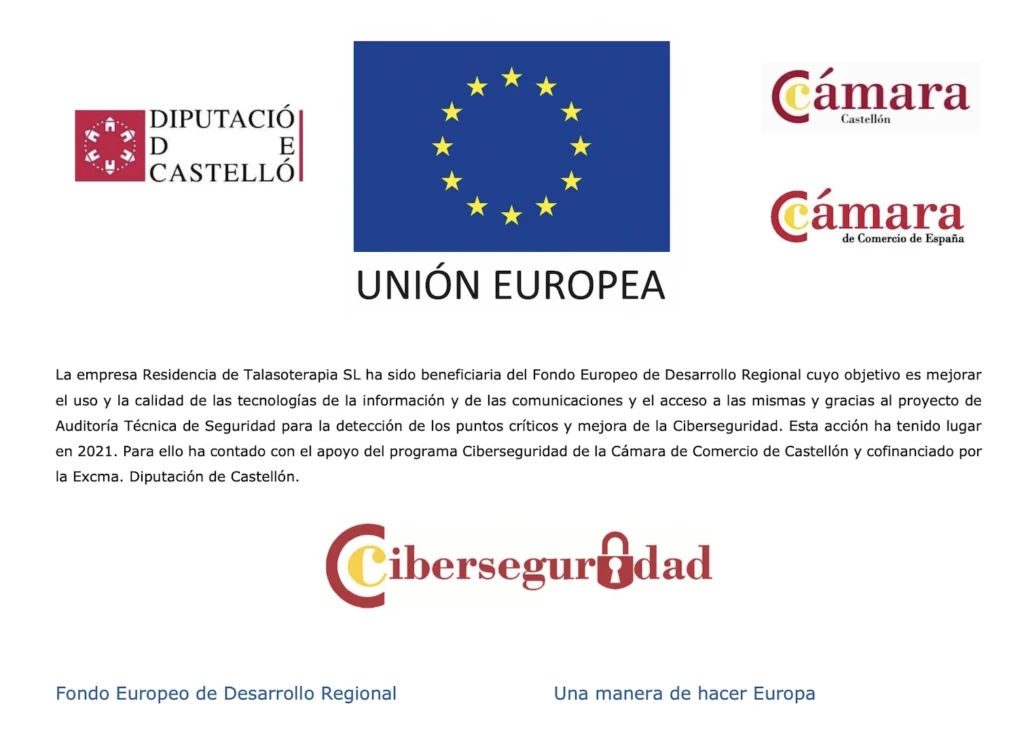Cookies policy
In compliance with the provisions of Law 34/2002 of July 11, on Services of the Information Society and Electronic Commerce (LSSICE), the following legal aspects are reported:
Website Ownership
Website Owner
Talatherm, S.L. – NIF B12458253 – Clínica Palasiet Residencia de Talasoterapia, S.L. – NIF B12013405 – Hotel Palasiet
Address
Calle Pontazgo, 11. 12560, Benicàssim (Castellón), España
Contact
Phone. 964300250 – Email: info@palasiet.com
Commercial registry or administrative authorization
Talatherm, S.L. Mercantile Registry: Castellón; Volume: 896; Book: 461; Folio: 192; sec 8; Sheet: 12,761 Thalassotherapy Residence, S.L. Mercantile Registry of Castellón Volume 55, Book 13, Sec 3 Folio 132, H 173
Activity
Health Center nº 5091 Hotel
Information and terminologies
Cookies are small files that web pages, online stores, intranets, online platforms or similar, store in the browser of the user who visits them and are necessary to provide innumerable advantages to web browsing in the provision of interactive services.
The following information on the possible types of cookies helps to better understand the functions they make possible:
Session cookies: These are those designed to collect and store data while the user accesses a web page. They are usually used to store information that is only of interest to keep for the provision of the service requested by the user on a single occasion (for example, a list of products purchased) and disappear at the end of the session.
Persistent cookies: These are those in which the data is still stored in the terminal and can be accessed and processed during a period defined by the user responsible for the cookie, and that can range from a few minutes to several years.
The cookies exchanged when browsing a web page can be:
Own cookies: These are those that are sent to the user’s terminal equipment from a computer or domain managed by the publisher himself and from which provides the service requested by the user.
Third-party cookies: These are those that are sent to the user’s terminal equipment from a computer or domain that is not managed by the editor, but by another entity that processes the data obtained through cookies. In the event that cookies are served from a computer or domain managed by the publisher itself, but the information collected through them is managed by a third party, they cannot be considered as own cookies if the third party uses them for their own purposes. (for example, the improvement of the services it provides or the provision of advertising services in favor of other entities).
There are many purposes for the use of cookies. According to purpose for which the data obtained through the cookies, some of the purposes may be:
Technical cookies: These are those that allow the user to navigate through a web page, platform or application and the use of the different options or services that exist in it, including those that the editor uses to allow the management and operation of the page. web and enable its functions and services, such as, for example, controlling data traffic and communication, identifying the session, accessing parts of restricted access, remembering the elements that make up an order, carrying out the purchase process of an order, manage payment, control fraud linked to the security of the service, apply for registration or participation in an event, count visits for the purposes of billing software licenses with which the service works (website, platform or application) , use security features while browsing, store content for video or sound broadcasting, enable dynamic content (for example, loading animation of a text or image) or share content through social networks. Also belonging to this category, due to their technical nature, are those cookies that allow the management, in the most efficient way possible, of the advertising spaces that, as another element of design or “layout” of the service offered to the user, the publisher has included in a web page, application or platform based on criteria such as the edited content, without collecting information from users for different purposes, such as personalizing that advertising content or other content.
Personalization Cookies: These are those that allow information to be remembered so that the user accesses the service with certain characteristics that can differentiate their experience from that of other users, such as, for example, the language, the number of results to be displayed when the user performs a search, the appearance or content of the service depending on the type of browser through which the user accesses the service or the region from which the service is accessed, etc. If it is the user himself who chooses these characteristics (for example, if he selects the language of a website by clicking on the icon of the flag of the corresponding country), cookies will be exempted from the obligations of article 22.2 of the LSSI as they are considered a service expressly requested by the user, and this as long as the cookies obey exclusively the selected purpose.
Analysis or measurement cookies: These are those that allow the person responsible for them to monitor and analyze the behavior of the users of the websites to which they are linked, including the quantification of the impact of the advertisements. The information collected through this type of cookie is used to measure the activity of websites, applications or platforms, in order to introduce improvements based on the analysis of the usage data made by users of the service.
Regarding the processing of data collected through analysis cookies, GT29 stated that, despite the fact that they are not exempt from the duty to obtain informed consent for their use, it is unlikely that they represent a risk to the privacy of users. provided that they are first-party cookies, that treat aggregate data for strictly statistical purposes, that information is provided on their use and the possibility for users to express their refusal regarding their use is included.
Advertising cookies: They allow efficiency parameters to be implemented in the advertising offered on web pages. Behavioral advertising cookies: These are those that store information on the behavior of users obtained through the continuous observation of their browsing habits, which allows the development of a specific profile to display advertising based on it.
In any case, it must be taken into account that these typologies are offered for guidance as they are the most common. The editors and third parties may carry out the categorizations that they consider best suited to the purposes of the cookies they use, in such a way that the principle of transparency towards users is respected.
Services to third parties
Additionally, El Palasiet has a presence in third-party portals and services for which, if you want to know the privacy conditions and use of cookies, you should consult the policies provided by them:
Facebook: https://es-es.facebook.com/help/cookies
Twitter: https://twitter.com/privacy
Youtube: https://www.google.es/intl/es/policies/technologies/cookies/
Linkedin: http://www.linkedin.com/legal/privacy-policy
TikTok: https://www.tiktok.com/legal/page/global/tiktok-website-cookies-policy/es
Google+: https://www.google.es/intl/es/policies/technologies/cookies/
Instagram: https://www.facebook.com/policies/cookies/
Acceptance of the cookie policy
Palasiet Thalasso Clinic & Hotel displays information about its Cookies Policy at the bottom of any page of the website each time you log in, so that you are aware.
Given this information, it is possible to carry out the following actions:
Accept cookies: This notice will not be displayed again when accessing any page of the portal during the current session.
Modify settings: You can obtain more information about how cookies work, learn about the Palasiet Thalasso Clinic & Hotel Cookies Policy and modify your browser settings to restrict or block Palasiet Thalasso Clinic & Hotel cookies at any time. In case of restricting or blocking cookies, it is possible that some functionality of the web will be reduced.
How to modify cookie settings or revoke your consent
You can restrict, block or withdraw consent (delete) the cookies of Palasiet Thalasso Clinic & Hotel or any other web page, using your browser. In each browser the operation is different, the “Help” function will show you how to do it:
Internet Explorer: https://support.microsoft.com/es-es/help/17442/windows-internet-explorer-delete-manage-cookies#ie=
Microsoft Edge: https://support.microsoft.com/es-es/help/10607/microsoft-edge-view-delete-browser-history
FireFox: https://support.mozilla.org/es/kb/Borrar%20cookies
Chrome: support.google.com/chrome/answer/95647?hl=»es»
Safari: www.apple.com/es/privacy/use-of-cookies/
Opera: https://help.opera.com/en/latest/web-preferences/#cookies
Android ->Settings of the browser used->Privacy of the browser used
Disabling add-on for Google Analytics browsers and others: In them you can block third-party analytical cookies from various services depending on the browser used by the user
reCAPTCHA cookies: We are increasingly affected by spam and abuse by automated robots, also known as bots. This forces us to use special programming provided by Google via a security cookie, as we receive a large number of phishing and fraud attempts via email. This measure allows us to comply with the proactivity required by the General Data Protection Regulation. You can obtain more information at the following link: https://policies.google.com/technologies/cookies.
Cookie Managers:
In addition, you can also manage the storage of cookies in your browser through tools such as the following:
Ghostery: www.ghostery.com/
Your online choices: www.youronlinechoices.com/es/
All about cookies: www.allaboutcookies.com/
Disconnect.me: https://disconnect.me/
Aboutads.info: http://www.aboutads.info/choices//





